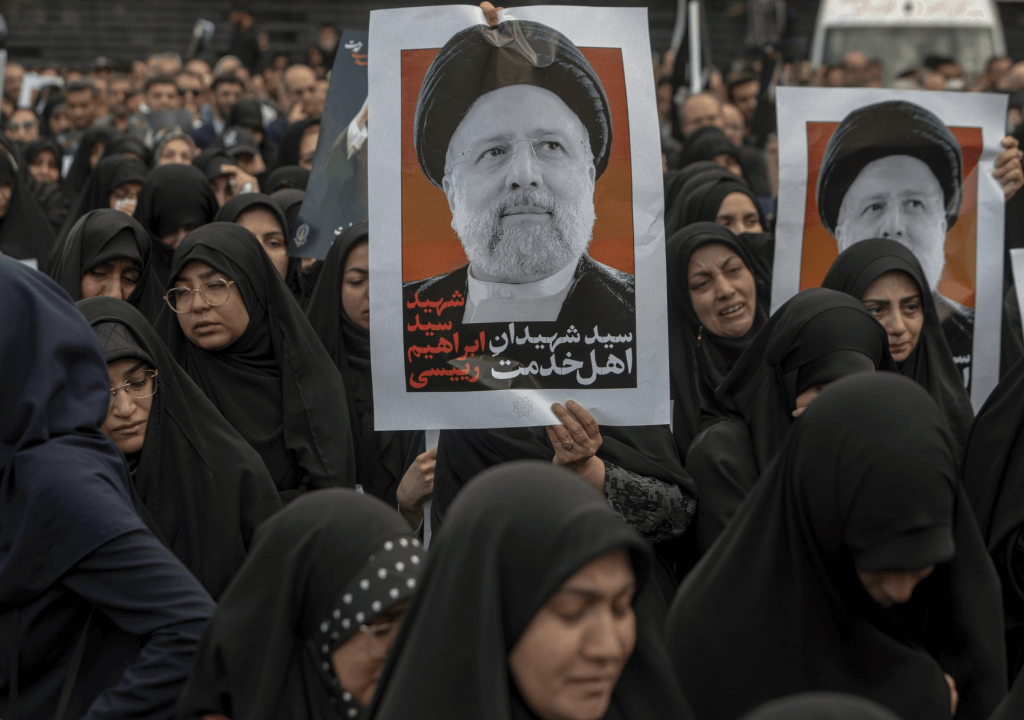The Islamic Republic of Iran’s president and conservative Shia leader, Ebrahim Raisi, died in a helicopter crash. The tragic incident occurred on the border of Iran’s East Azerbaijan province, which is close to the Republic of Azerbaijan. Raisi was returning from the Republic of Azerbaijan, and reports indicate that bad weather and an outdated helicopter are considered the causes of the accident. An inquiry has been declared, with accusations of Israel’s involvement. Raisi, the country’s most notorious figure of the repressive regime, was well known for his conservative Islamism and was widely considered a likely successor to Supreme Leader Ayatollah Ali Khomeini. As president and in other important positions, Raisi strictly implemented severe punishments for blasphemy and actions against the regime, including several death penalties, earning him the nickname “The Butcher of Tehran”. Despite his repressive policies, many people, especially in Tehran, filled the mosques for special prayers. However, at the same time, fireworks were visible, and celebration videos spread on social media. What will happen to such a divided country after Raisi?
As long as Iran remains an Islamic Republic under the supreme leadership of Shia Islamist Ayatollah Khomeini, no significant changes in administration are expected. Following Raisi’s death, Ayatollah Ali Khomeini addressed the nation, assuring that there would be no disruption to the state and government, and that people need not worry. He swiftly appointed Vice President Mohammed Mokhber to the presidential position shortly after the death was announced. This rapid appointment, a constitutional mandate, aimed to prevent any political instability in a country where less than 50% of the people vote, and there is visible discontent with the government. Just a few years ago, massive protests erupted in Iran after Kurdish Women, Mahsa Amini’s death for not obeying Islamic rules, and it’s considered as challenging the government. Raisi responded with his usual tough stance, he cracked it down with an iron fist and executed many protest-related individuals, actions which some people viewed as justice served. The government, recognizing the loss of Raisi, known for his harsh enforcement, understands the need to find a new strong leader soon. An election, required by the constitution to occur within 50 days, in tight control of the regime will be carried out soon. Candidates must be approved by the elite council, and anyone not aligned with the supreme leader cannot contest. It is expected that even former president and popular leader in the West, Hassan Rouhani, will not be allowed to run due to the fact that he is now unfavorable for the elite council.
The foreign relationships are not expected to change significantly after Raisi. There were some improvements during previous Rouhani’s period, including the nuclear deal with the United States, but Raisi has closed that chapter. Given the low chance of Rouhani’s return and the perceived lack of skilled leadership in the US, the relationship is unlikely to improve even after Raisi. Relations with Israel, their enemy state, are expected to worsen. Although there is no official proof, many believe that Raisi’s death is part of Israel’s ongoing efforts to target important Iranian figures. Iran’s connection to other countries is largely driven by Islamism, leading to continued support for Palestine, Hamas, political and military organizations in Iraq and Syria, the Houthis in Yemen, and Hezbollah in Lebanon. Due to the need to cope with Western sanctions, Iran’s relationship with Russia, China, and India has flourished under Raisi. Russia continues to have a strong relationship with the Islamic Republic, while China has emerged as a key partner and major oil importer. India, under Narendra Modi, also maintains a strong relationship with Raisi, with Modi being one of the first leaders to offer condolences on Raisi’s demise. This relationship is expected to persist, as Iran does not foresee any improvement in relations with the US. Regarding Europe, while it does not harbor the same level of animosity towards Iran as the US, it might seek to improve relations if a moderate Islamic leader comes to power. With Saudi Arabia, diplomatic relations have begun to develop, influenced by China’s interests. As Saudi Arabia reduces efforts to propagate Sunni Islamic beliefs and the Israel-Palestine conflict drags on, the likelihood of a deterioration in relations with Saudi Arabia seems low.
The demise of Ebrahim Raisi, the “Butcher of Tehran”, is significant as it reveals the true state of Iran. While the nation mourns their popular leader, many videos and comments on social media celebrating his death show that the country is deeply divided, with the protests following Mahsa Amini’s death still resonating in people’s hearts. This situation also highlights the impact of American sanctions, as Iran still uses a Bell 212 helicopter for the president, indicating a lack of technological development despite accusations of developing nuclear technology. Conspiracy theories are rising concerning Iran’s internal and external enemies, with the decision to use the helicopter in bad weather and suspicions of Mossad’s involvement raising many questions. Although the loss of Ebrahim Raisi is a significant setback for the Islamic Republic, a new president will soon be elected, and reports suggest that Mojtaba Khamenei will succeed Ayatollah Khamenei as Supreme Leader, potentially pushing the Islamic Republic into dynastic politics.








